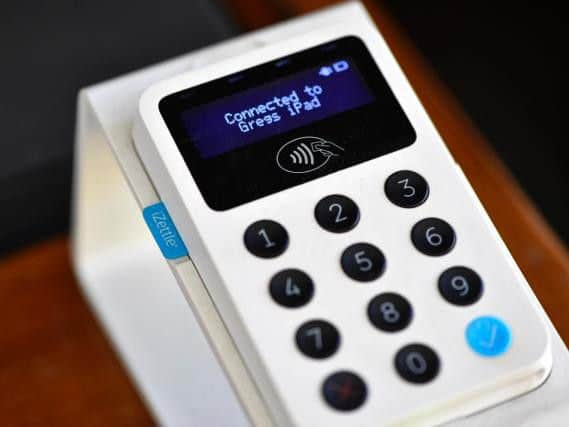How fintech Amiqus ID is helping homeless people get a bank account


Edinburgh-based Amiqus ID is a key part of the ProxyAddress project, which is due to start in the London borough of Lewisham this autumn. It allows a local authority to associate a vacant property with the identity of a specific individual who is homeless or at risk of homelessness – for example, after a relationship break-up which means they have no access to their former home, or after being frozen out of a joint bank account.
This proxy address – enabled by behind-the-scenes Amiqus technology – allows the individual involved to access a bank account, which in turn allows money to be paid in and stops that individual going into a cycle of decline.
Advertisement
Hide AdAdvertisement
Hide Ad“We heard about ProxyAddress, which was the idea of Chris Hildrey from the Design Museum in London,” explains Amiqus founder and chief executive Callum Murray. “He had a great idea but was faced with a technology challenge to make it happen.
“Not having an address is a huge limiting factor in getting a bank account. We thought that we could help as we had almost everything in place to vouch for an individual’s identity; what we do is very closely aligned to the kind of identity checks needed to make the scheme work. This project is really aligned with our values. Our mission is to be a force for good and this was a perfect example of a project we could take to market.”
This article appears in Talking Money - a special report and content series from The Scotsman in association with Womble Bond Dickinson
Follow @TheScotsman and @WBD_UK on Twitter for updates.
Murray says Amiqus first got involved in the summer of 2018 and, since then, has been talking to banks, the Financial Conduct Authority (FCA) and other stakeholders.
With the background work on identity checks in place, individuals approaching councils with a relevant difficulty will be signposted to the ProxyAddress scheme. “They can then get access to an account with Monzo Bank [another partner in the project] and they are also pointed towards the Big Issue and can become a vendor. They get a card reader from iZettle so they can accept contactless payments for the Big Issue and get funds into their account.”
Murray says there is “lots of complexity” behind the scenes in establishing the person’s identity and ensuring there is no suggestion of fraud or that the individual is being used as a money mule.
This was a challenge in getting “traditional high street banks” on board, he says, adding: “They are all working with vulnerable persons but there is no clear standard industry approach.
Throw in the mistrust that some people who are homeless or rough sleeping have of the banks and it’s hard.”
Advertisement
Hide AdAdvertisement
Hide AdOnce the pilot project is up and running, Murray says it could be used by local authorities anywhere in the UK. “It’s all about targeting people who are at risk and giving them a hand-up before they get into too many complexities and challenges. It’s offering temporary support when it is really needed; it’s not a silver bullet for a range of complex issues – but hopefully it will help individuals get an address, a bank account and potentially a job when they are in difficulties.”
So what is in it for Amiqus? “It’s not a huge revenue opportunity,” says Murray, “It’s about us saying we want to use our tech for good and want to work on projects like this.”